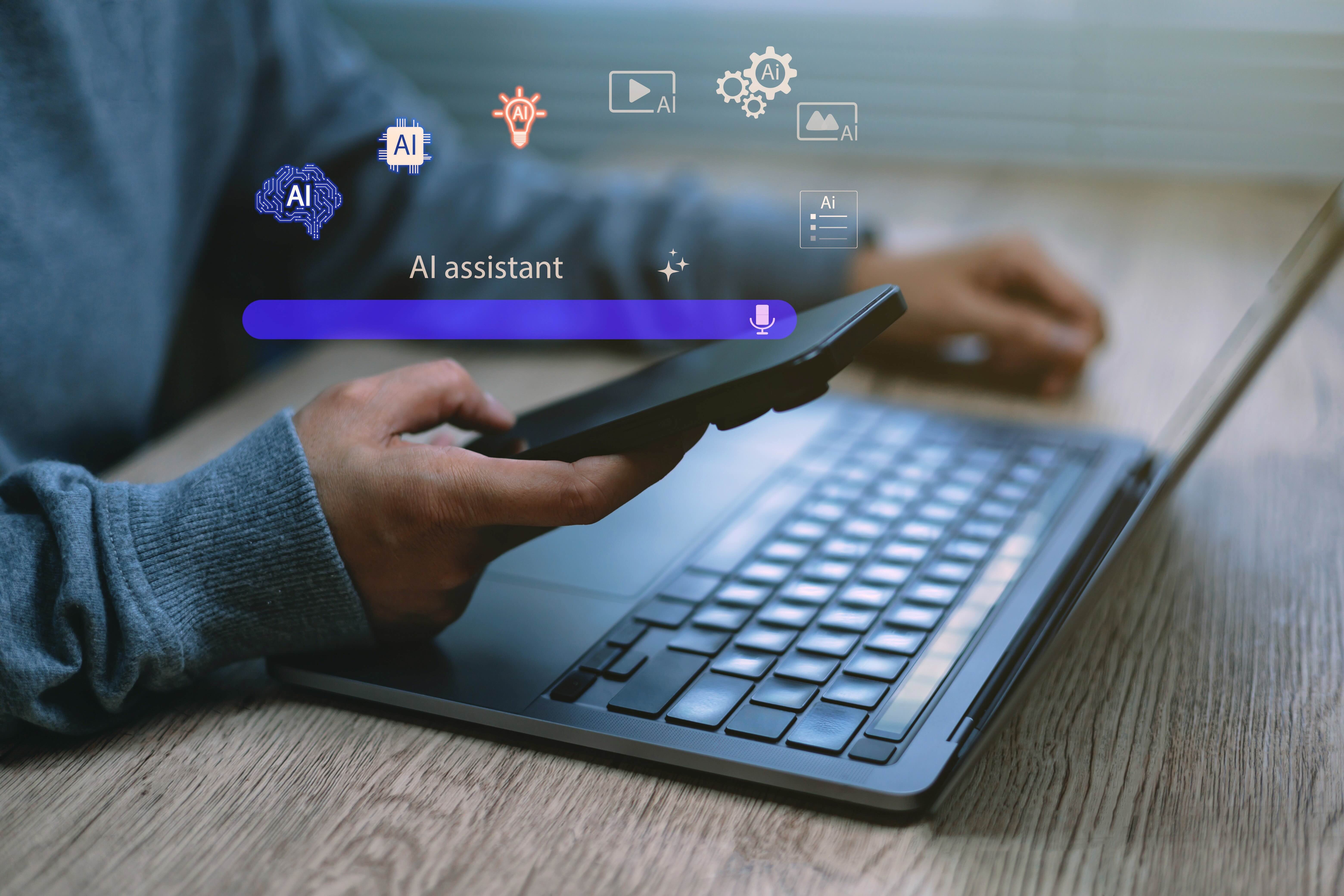Online Invigilation Security for Examinations during Lockdown – How Does it Compare to Test Centres?

At TestReach, our software is used both in test centres and via online invigilation, so we can compare approaches with consideration to security. At a test centre, candidates attend in person and enter their question answers on screen, while monitored by an in-person invigilator. With online invigilation however, the exam hall experience is recreated online. This means that an exam candidate can sit their exam on a computer at any location, while being invigilated online by a remote supervisor, who is connected to the candidate by audio, video and remote screenshare.
Since the Covid-19 crisis and lockdown has hit, test centre examinations are being cancelled. Understandably, many organisations are switching to online invigilation to allow their examinations to continue. There has also been a large spike in demand for online invigilation (also known as online proctoring) generally, as examining bodies look to remove the issues associated with paper-based exam delivery in test centres – administration overhead, risk of paper going missing, costs of couriers, etc.
As a result, we’ve had a lot of queries about how secure it is to run an invigilated exam online. Is it easy to cheat? How well trained are invigilators? What happens if someone does cheat? How do you check the person’s ID, or environment? Is it more difficult to cheat when watched by an online invigilator, or is a test centre more effective? Let’s investigate this some more.
Record and Review Invigilation
A big factor to consider in this comparison is what type of online invigilation is being used. If the online invigilation is “record and review” what this means is that the invigilation is not being done in real-time for the duration of the exam. Instead, the candidate sits their exam on a computer and a recording is made of them taking their exam. The recording is then reviewed after the exam to see if there have been any activities that are not allowed. The downside of this approach is that if there is any cheating, it is only picked up after the examination is finished. Obviously if a candidate is behaving suspiciously in the recording then the examining body when notified, may take action relating to that specific candidate. However with this approach, there is nothing to stop a candidate transcribing all the questions and compromising the item bank. High-stakes item banks are extremely sensitive, not to mention the strict rules that regulators put in place. Because of this, the exam supervision has to be done in real-time for the duration of the exam, so that the supervisor can immediately intervene and stop the transcribing of questions. This cannot be a check done at a later stage.
The Security of Online Invigilation (Online Proctoring)
Remote invigilation re-creates the exam-hall experience online. Everything is done via the internet and this not only makes it extremely scalable but also relatively quick and easy to roll out. Having an online solution also means that candidates can take the exam from a location of their choice, such as their home or their office, and they are no longer mandated to travel to a test centre. This last point has become crucial during the coronavirus lockdown, as test centres cannot continue normal operations at present.
There are a number of different types of remote invigilation solutions in the marketplace, but most (with some exceptions) involve the same basic components:
- 1. Pre-Checks: running system checks in advance of the exam to ensure that the candidate’s computer and system is all set to support a remotely invigilated exam.
- 2. Candidate Authentication: at exam time, verifying that the correct person has presented to sit the exam.
- 3. Securing the Environment: ensuring that the candidate is in a suitable environment in which to take the exam, without access to any sources of information that are not permitted.
- 4. Candidate Supervision: watching the candidate for the duration of the exam to make sure they don’t do anything they are not supposed to, and if they do, to raise the issue with the candidate as an infringement.
- 5. Reporting: notifying the awarding body of any issues that arise during the exam. For example, if a candidate behaves in a suspicious manner and breaks the exam rules, this is fully reported to the examining body.
How does online invigilation (proctoring) prevent cheating?
One of the initial steps in online invigilation is to authenticate the identity of each candidate, to confirm that that the right person has presented to sit the exam. This is typically done by the presentation of official photo ID, but may be supplemented by other means such as the answering of some personal questions. The invigilator then checks the candidate’s environment, to ensure there are no notes, or a mobile phone, or anything that is not allowed. The invigilator can see a high-quality video feed, so there are some comprehensive checks that can be done.
It’s important to note that the ratio of supervisors to candidates is usually much lower than in a test centre. It might only be up to 4 or 6 candidates per supervisor, and each candidate is being watched very closely for any suspicious behaviour. The invigilator supervises the candidate through audio, video and remote screenshare, so there are multiple means by which suspicious behaviour can be detected. Technology also plays an important part in this process, where human invigilators can be assisted by various detection technologies to draw their attention to certain triggers.
Another deterrent for candidates is having to agree to a checklist of behavioural expectations as part of the steps that are completed before access to the exam is granted. This adds a sense of gravitas to the process and can be used to remind candidates of the potential consequences of trying to cheat.
Online invigilation ensures the integrity of the exam, as:
- There are relatively very few candidates per invigilator
- A quality video feed means close monitoring of face and eyes
- Any movement is noticed quickly
- Everything is recorded so any issues that arise although dealt with immediately, can be analysed later
- If there is an issue, an infringement can be raised or the exam closed immediately
- - The candidate cannot see the invigilator, which removes the concept of “opportunistic” cheating – see more below on this.
Unlike in an exam hall, with online supervision most solutions do not allow the candidate to see the invigilator. This means that there is no way for the candidate to know when might be a good time to read a note for example, or take a picture of the question on their mobile phone.
What about toilet breaks during examinations?
Another question that sometimes arises with online invigilation is how to manage toilet breaks in a way that ensures that the exam integrity is not compromised. This really depends on the preferences of the examining body and the rules they wish to apply. If it is a short exam, candidates may be advised that once the exam starts they cannot leave to go to the toilet, so to go beforehand. Some of the organisations that we work with allow one or two toilet breaks for up to 5 minutes during a long exam, similar to the approach taken in an exam hall environment. In this case they do not believe there is a high-risk of candidates being able to gain significant advantage from trying to look up information off camera within those five minutes. It is a pragmatic approach, which is similar to a candidate taking a toilet break in an exam hall, where they may have notes hidden in a specific cubicle. Alternatively some examining bodies structure exam papers into separate sections and enforce linear progression (so you can’t start section 2 until you finish section 1, and once a section is submitted you can’t get back into it), so a break can be taken in between without compromising exam security.
Test Centre Exam Invigilation Security
At a test centre, the in-person invigilator is clearly visible, so candidates can see when they move around the room or are looking away, giving rise to the potential for “opportunistic” cheating. When the invigilator turns their back and walks down an aisle, that might be a good time to check a note, for example. With most remote invigilation systems, candidates cannot see their invigilator, so they have no way of knowing what is visible to the invigilator and what is not, which is significant when it comes to security.
For computer-based tests at a test centre, depending on the assessment application being used, the exam can be made more secure with options like checking in candidates as they arrive or by the use of PIN codes, which are given to candidates only once they have checked in and had the ID verified. If a candidate has to be both checked in and use their PIN code to start the exam, then even if someone gets the PIN code outside of the test centre, there is no way for them to access the test as they have not been checked-in.
Other online assessment features can also help improve security at test centres, such as randomised papers for each candidate, so there can no easy copying or sharing of content.
Online Invigilation
So if you’re thinking of online invigilation to resolve issues around running exams during the current Covid-19 crisis, you can be reassured that it provides a very secure way to preserve the integrity of your exams. However, bear in mind that it has to be live, real-time invigilation if you want immediate intervention to prevent the compromising of your exam content.
At TestReach, we have online invigilation as an integral part of our solution, which means candidates do not have to leave the assessment application to enter a separate invigilation service, which mitigates the risks associated with integration points. It facilitates very close monitoring of small numbers of candidates per invigilator. The candidate also cannot see their invigilator while they are being watched, so opportunistic cheating doesn’t arise.
Not only is online invigilation hard to beat in terms of the convenience and comfort it provides to candidates, but certainly at a time when everyone is confined to their homes during a pandemic, it offers a real alternative to organisations who need to get their high-stakes exams delivered securely.
If you’d like to learn more about online invigilation (called online proctoring in the US) please download our Guide to Remote Invigilation here.
You can also read more about the benefits of online invigilation here.


















